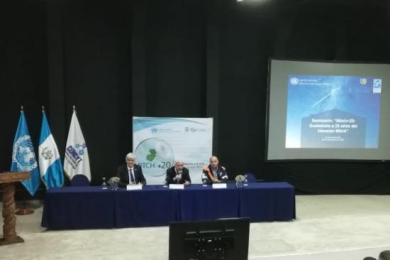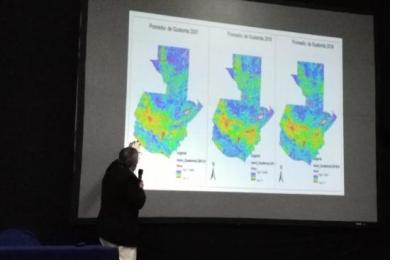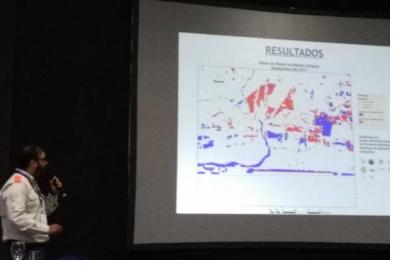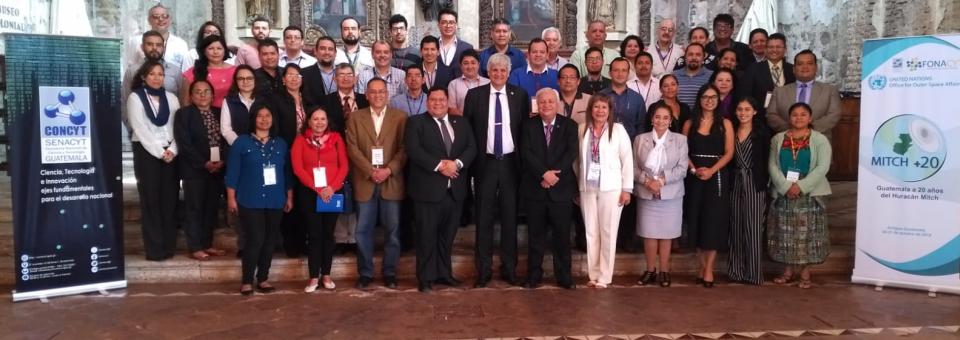The United Nations Platform for Space-based Information for Disaster Management and Emergency Response (UN-SPIDER) and the National Council for Science and Technology of Guatemala (CONCYT), through the National Secretariat for Science and Technology (SENACYT), co-organize a seminar in Guatemala from 30 to 31 October about the technological and institutional progress made in Guatemala in prevention, preparedness and response during disaster situations.
Twenty years after Hurricane Mitch made landfall in Guatemala, experts from various disciplines gathered to discuss the advances in science in relation to the different phases of disaster management. In November 1998, Hurricane Mitch killed about 9,000 people and displaced almost half a million. The economic losses amounted to six million dollars. Since then, Guatemala faced the eruption of a volcano in June 2018, an earthquake in San Marcos in November of 2011 and the hurricanes Stan and Agatha in 2010.
During the two-day event, participants will discuss topics related to information technologies, satellite technologies, and communication in order to enhance disaster preparedness and response. The objectives include
Discussing the contribution to the efforts made by the National Secretariat of Science and Technology (SENACYT) and UN-SPIDER in science and technology promotion for disaster management
Boosting the use of geospatial technologies
Tracking the progress made by the public and private sector as well as the efforts made by Universities and non-governmental organizations in Guatemala
Contributing to the implementation of the Sendai Framework and the Paris Agreement
Since 1990, the institutional efforts regarding disaster management have shifted towards prevention. That year, the United Nations launched the International Decade for Natural Disaster Reduction and, in 1996, the Congress of the Republic of Guatemala presented the National Coordination for Disaster Reduction of Guatemala (CONRED) which, in comparison with previous institutions, had the mandate to address both prevention and response in case of disaster.
UN-SPIDER was designed under the United Nations Office for Outer Space Affairs as a programme to promote universal access to space-based information to support all phases of the disaster management cycle.




